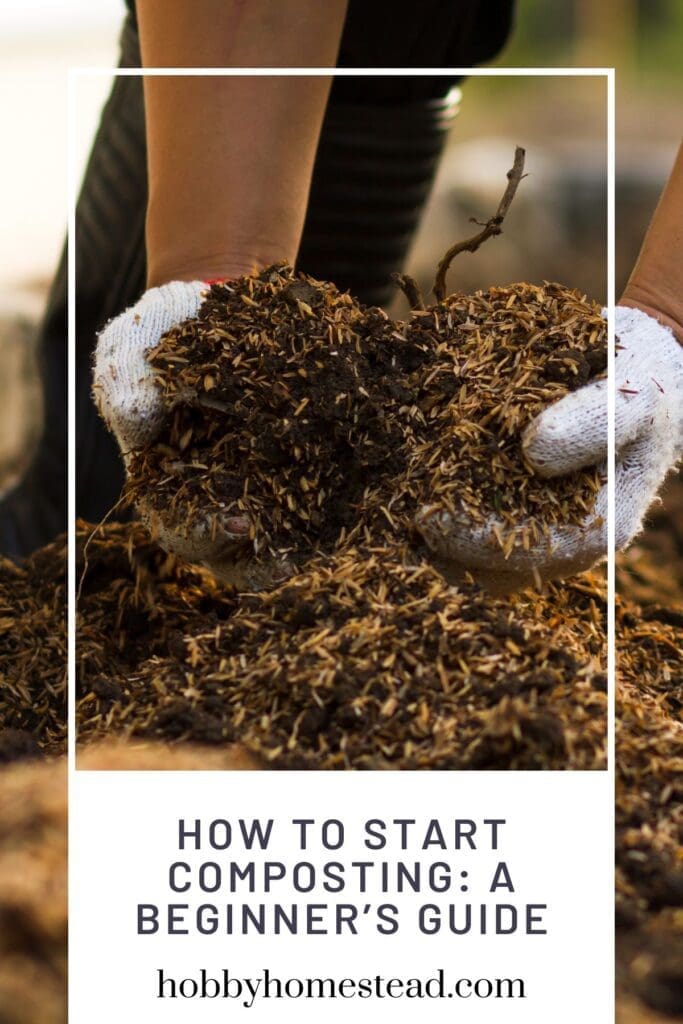More recently, we’ve seen the need to prepare for an emergency if the grid goes down. The past few years have made one thing clear, the possibility of a power outage for days, even weeks can happen.
Imagine this: the lights flicker… then go out. The fridge goes quiet. The internet drops. And hours later, the power still hasn’t come back. Now what?
If you’ve ever wondered how you’d manage without electricity, you’re not alone. Whether it’s a storm, cyberattack, or overloaded power grid, outages are becoming more common. On the homestead, that’s more than just an inconvenience. It can affect your food, water, and even your safety.
In those situations, it’s worth knowing what to have on hand and what actions to take to get you and your family safely through it. Let’s walk through what to do if the grid goes down and how to be ready before it happens.
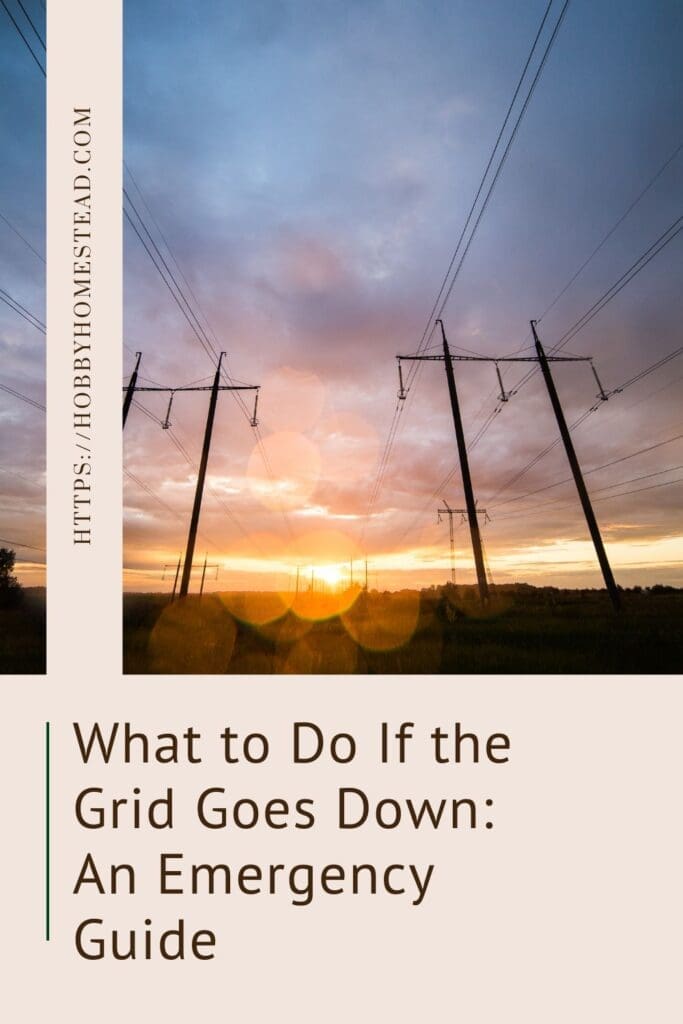
Understanding a Grid-Down Scenario
A grid-down situation means the power supply to your home is cut off and it’s not coming back anytime soon. This could be caused by:
- Ice storms or high winds
- Wildfires or floods
- Equipment failure
- Cyberattacks or power shortages
For most people, the question isn’t if the grid fails, but when. The good news? You can be a step ahead with gardening, preserving food, and using tools that don’t always need power.
Your First Priorities: Water, Food, Heat, Light, Communication
In any emergency, the basics matter most.
💧 Water
You can only last about 3 days without clean water.
- Store water ahead of time (1 gallon per person per day).
- Use a Berkey, LifeStraw, or boil water to purify.
- Collect rainwater safely using barrels and gutters (check local laws).
🍲 Food
If the grid is down, your freezer could start thawing within 24 hours.
- Eat perishable foods first (fridge, then freezer).
- Keep a supply of non-perishables. rice, beans, oats, canned meats, peanut butter.
- Learn how to can, dehydrate, and ferment your harvest.
🔥 Heat
Winter without power can be dangerous.
- A wood stove is ideal for both heat and cooking.
- Keep warm with wool blankets, thermal layers, and insulated curtains.
- Never use a propane gas stove or grill indoors. It’s not safe.
🔦 Light
- Stock headlamps, flashlights, candles, and solar lanterns.
- DIY oil lamps or tallow candles can be made with household items.
- How To Make Candles with what you can find.
📻 Communication
Cell towers might go down, too.
- Have a hand-crank radio for news and updates.
- Use walkie-talkies or CB radios to stay in touch locally.
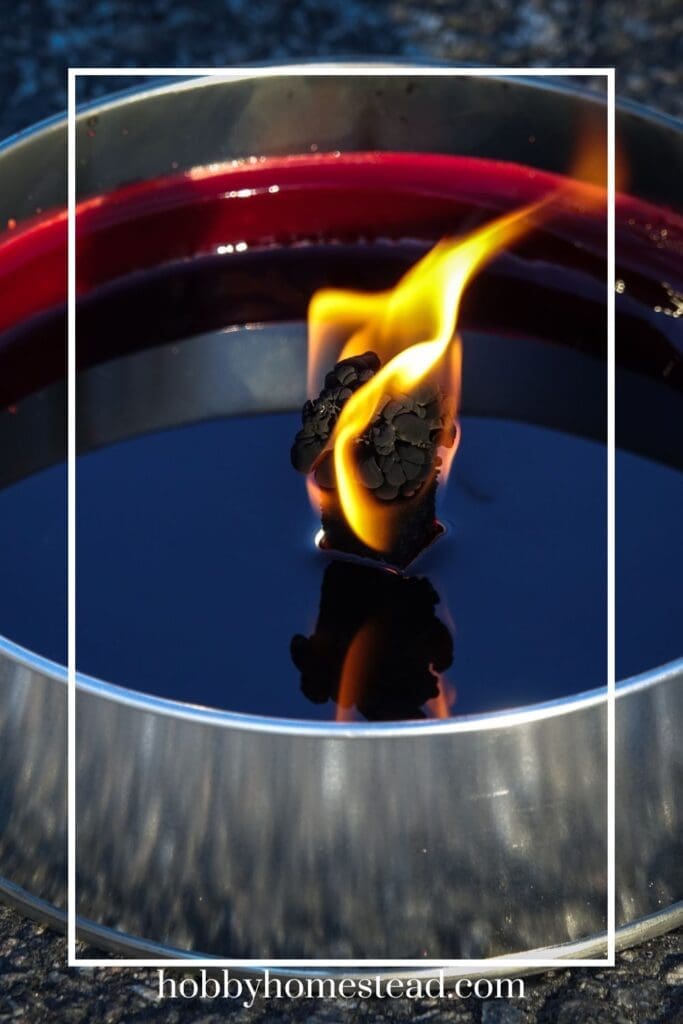
Backup Power Options
If you’re not ready to go fully off-grid, consider small steps to keep the essentials running.
- Solar power kits. Great for running lights, charging phones, or powering a small fridge.
- Generators. Gas or propane-powered. Keep fuel safely stored.
- Battery banks. Store solar energy or charge while the grid is still active.
Even a manual coffee grinder or a hand-crank blender makes a big difference. Have cast iron cookware to cook over an open fire if needed.
Generator Safety: A Must-Read
Generators are lifesavers, but they can be deadly if used improperly.
- Never run a generator indoors, not even in a garage.
- Keep it at least 20 feet away from your house.
- Aim the exhaust away from doors and windows.
- Use heavy-duty, outdoor-rated extension cords, and never overload them.
- Follow the user manual for wattage limits and proper cord gauge.
- Install carbon monoxide detectors if you use a generator regularly.
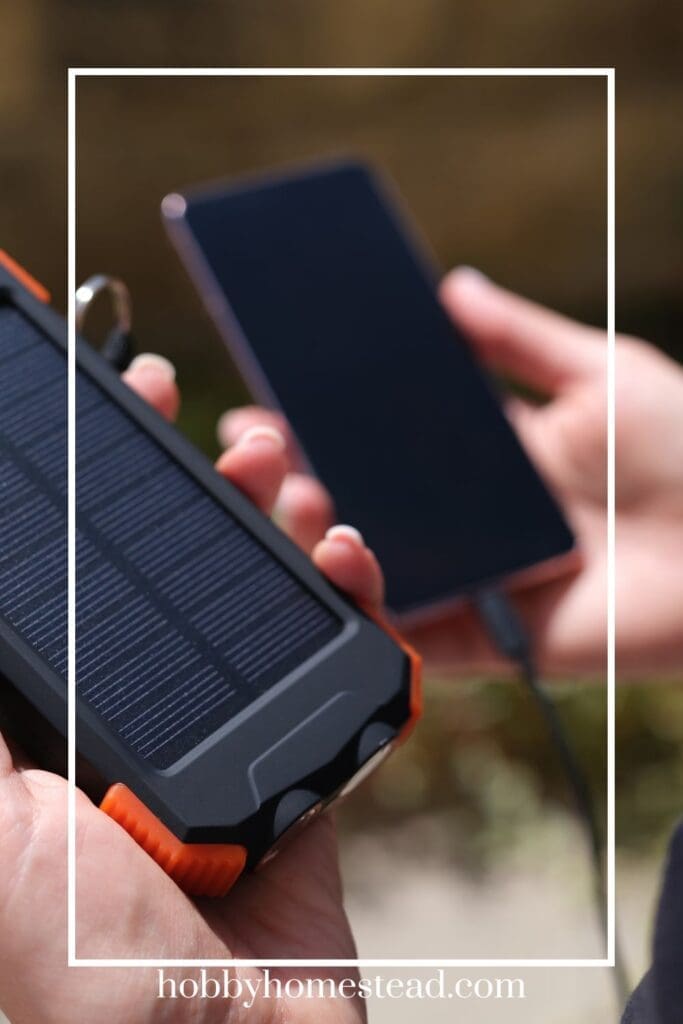
Homestead Skills That Really Matter
When the power’s out, old-fashioned skills shine. Here are a few that can help:
- Cooking without electricity. Learn to use a rocket stove, solar oven, or cook over an open fire.
- Preserving food. Water bath canning, fermentation, and dehydrating don’t require a freezer.
- Heating water manually. Use a stockpot over fire or a sun-powered water heater.
- Manual tools. A crank beater, grain mill, or washboard can help you keep going.
Bonus: What to Do Right After the Power Goes Out
If the grid suddenly fails, here are the first actions to take:
- Fill up water containers right away in case municipal supply is affected.
- Shut off the main water valve if there’s a risk of freezing pipes or contamination.
- Set up backup power, like a generator or battery system (see generator safety tips below).
- Take care of food:
- Keep fridge and freezer doors closed.
- Use a gas stove or grill to cook anything that might spoil.
- Know that a fridge stays cold for about 4 hours, a full freezer for 48 hours.
- Use an instant-read thermometer to check food before cooking or eating.
- Set up a power-outage kitchen. gas stove, outdoor grill, cast iron pans, manual can opener.
- Set up a handwashing station and emergency toilet if water stops flowing.
- Assemble and use water filters to ensure clean drinking water.
- Stay warm or cool. dress in layers, block drafts, and have thermal blankets ready.
- Write down important phone numbers and information in case your phone dies.
- Use solar-powered or crank radios to get emergency updates.
- Maintain sanitation to avoid illness.
- Check on neighbors, especially the elderly or those with medical needs.
- Communicate your plans to loved ones. Especially if you need to relocate.
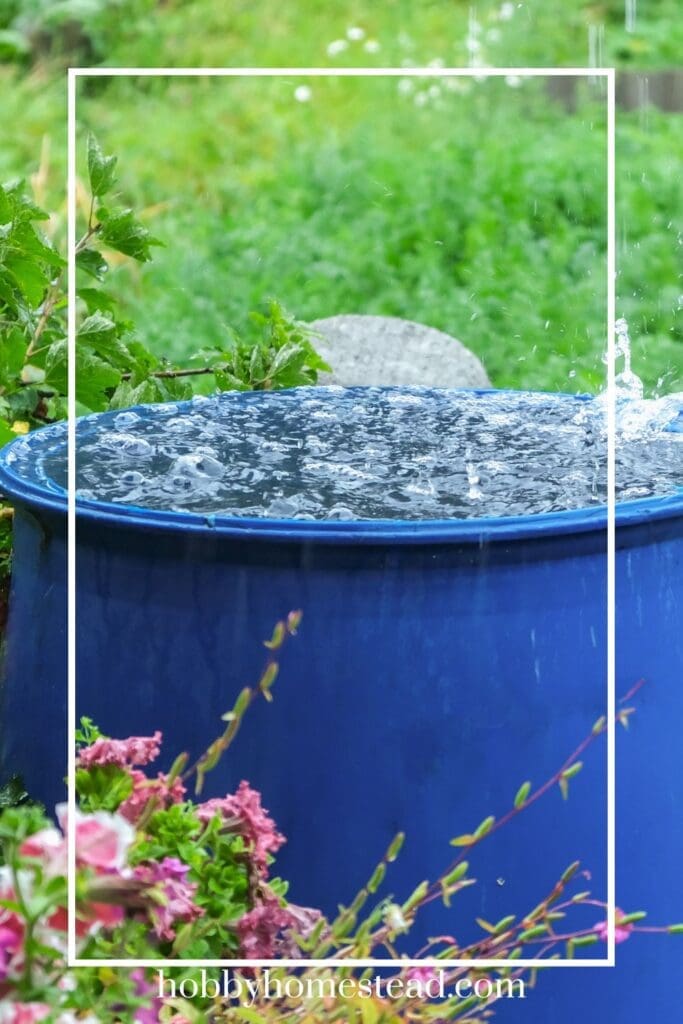
What to Stockpile (and What Not To)
A little preparation goes a long way. Start simple.
Essentials to have on hand:
- Water jugs, filters, or purification tablets
- Canned and dry goods
- Matches, lighters, and candles
- Batteries and solar lights
- Extra blankets and warm clothing
- First aid kit and basic medications
- Pet food and supplies
- Cash (ATMs may not work)
What not to overdo:
- Fancy gadgets that need batteries
- Freezer foods that spoil quickly
- Items you don’t know how to use
Bonus tip. Try a “power outage weekend” to test your setup!
Resilience Is a Homesteader’s Strength
You don’t need to go full doomsday prepper to be ready for a grid-down scenario. Start with what you have. Build your supplies slowly. Learn a few new skills each month.
The more prepared you are, the less panic you’ll feel and the more likely your family is to thrive through anything. And that’s really what homesteading is all about: being resourceful, resilient, and ready.

